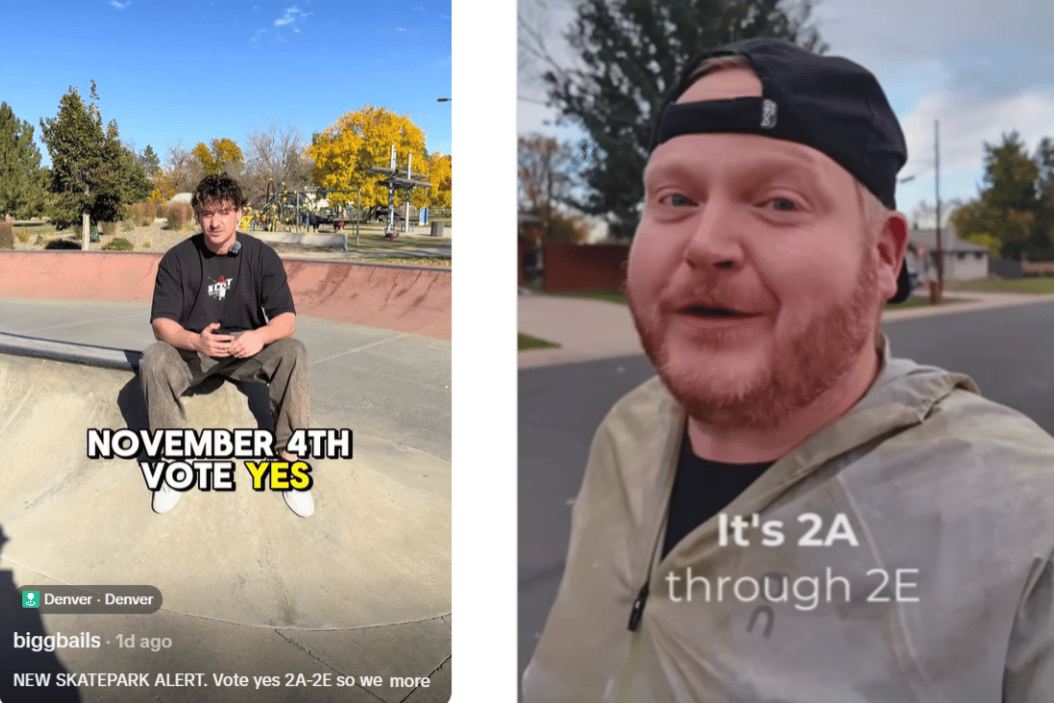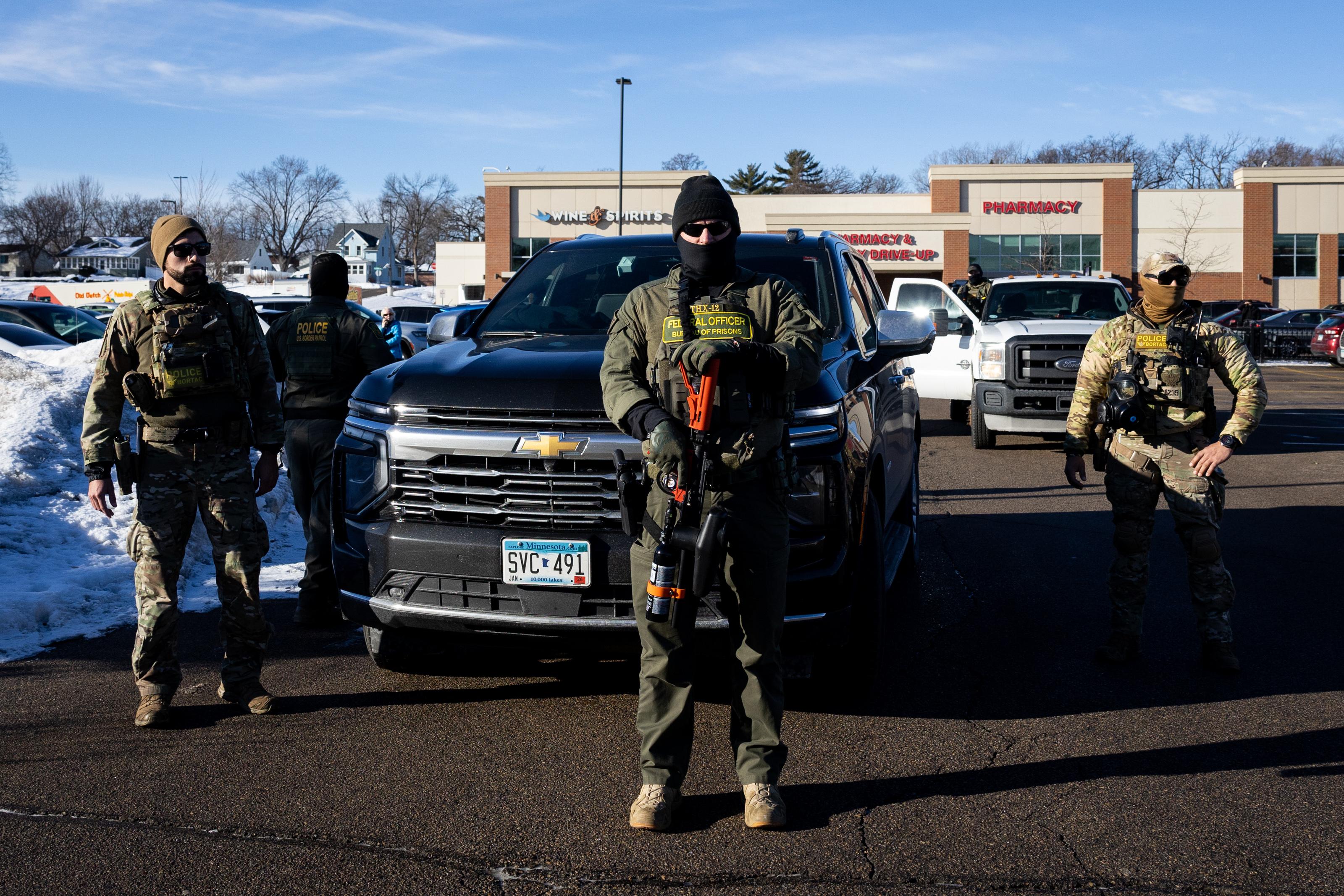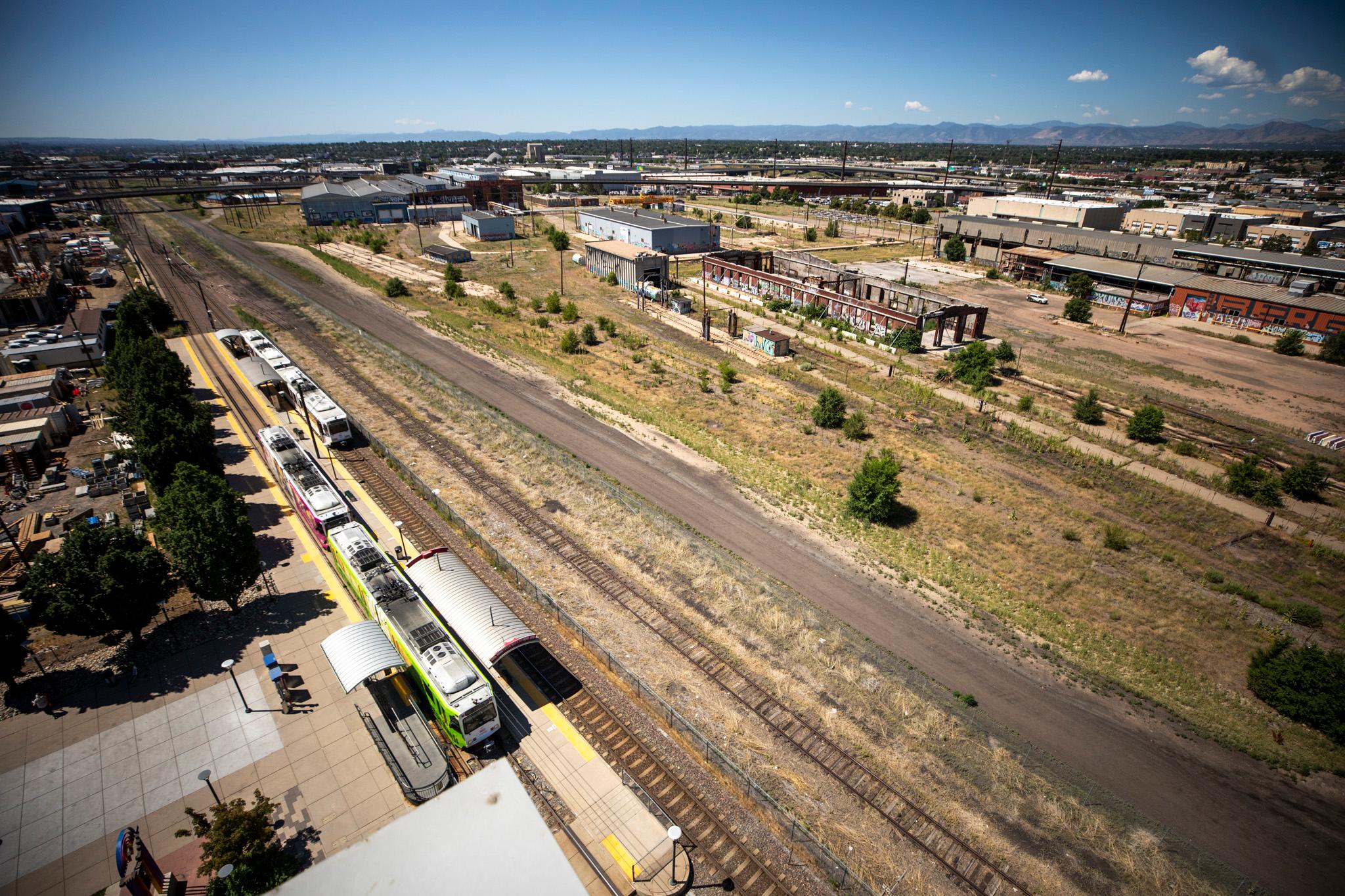If you scroll past enough local TikToks, you might find yourself watching a mustachioed man with the handle “Good Trouble” holding a tiny microphone and talking about how confusing Denver’s upcoming ballot is.
“I'm a fairly recent Denver transplant and I wanted to participate in my local elections, and I've been seeing and hearing a lot of noise relating to certain initiatives,” said Sam Rosenholtz, known online as Good Trouble. “So I took it upon myself to do my own research and I wanted to share with you one of these things that I will be voting yes on.”
Rosenholtz, who has 2 million followers on TikTok and is popular among liberal and progressive audiences, goes on to explain that he’s voting to approve ballot measures 2A through 2E, the five Vibrant Denver bond initiatives. The proposals, if passed, would approve nearly $1 billion of debt for capital improvements across the city.
“Ultimately, this is a massive financial investment into Denver that's going to benefit every resident in this city, including the unhoused,” Rosenholtz told his audience. “It seems like a (expletive) layup to me.”
Rosenholtz added one more fact in the caption: He was paid by the Vibrant Denver bond campaign to post the video.
“Paid partnership with Vibrant Denver Bond,” the description stated.
It’s part of a growing trend in the political world. Campaigns are paying influencers to carry their message, hoping for lower-cost and higher-impact advertising that feels more authentic to young audiences.
Each video follows a similar format.
Denverite identified eight TikTok and Instagram posts sponsored by the bond campaign. They were posted by a range of local creators who focus on everything from development to food or outdoor adventures.
Each video starts with a personal hook.
“I love how outdoorsy everybody is, but everybody is outdoorsy,” said Jeffrey Binney, who has amassed 189,000 followers on Instagram. “Cherry Creek Trail is rush hour traffic. City Park at 8 a.m. is like Coachella. So yeah, I'm literally running, walking to go drop off my ballot because there's a fix on the ballot in Denver this November.”
Then, they talk about why they are supporting the bond package.
“With the money generated from the bond, they plan on building a new skate park in downtown Denver,” said ski and skateboard content creator Bailey Pine. In fact, the skate park is planned for southeast Denver’s Kennedy Park, where Pine was standing for the video.
They top it off with a familiar promise: the passage of the bond won’t result in increased taxes.
“All this can happen without raising taxes,” said Megan Zarcone, who posts about travel and parenthood for an Instagram audience of about 117,000. “Join me in voting yes and keeping Denver vibrant, connected, and strong this fall.”
(While the bond won’t raise taxes, it will extend an existing property tax that’s collected citywide. If the bond isn’t passed, the city would instead pay down existing debts faster.)
Comments under each post mostly engaged with the content at face value, with few if any objections to the paid content.
Several creators for comment did not immediately respond to Denverite’s request for comment.
Political campaigns are trying to tap the ‘creator economy.’
Mike Strott, the spokesperson for the Vibrant Denver bond campaign, said more than 10 creators are expected to make sponsored content about the bond. It’s an attempt to reach people who don’t get their news and information from traditional news outlets, he said.
“As a local campaign deploying an ad strategy to reach Denverites, we asked a wide range of local voices — urban enthusiasts, parents, athletes, book lovers, foodies, community development experts and others — to post educational-type focused content about Yes on 2A-2E and why voting yes matters from their perspective,” he told Denverite in an email.
Strott would not disclose the budget for the ad campaign, noting that the strategy is still being deployed so the figure isn’t immediately clear. The campaign contracted with an ad agency that commissioned the content creators.
“Most importantly, we prioritized partnering with folks who themselves wanted to be supportive of what the Vibrant Denver Bond was going to accomplish for Denver so they could speak authentically in their advocacy to their followers,” he said.
Megan Burns, a digital brand strategist who works in advocacy, said it’s part of an effort for politicians to better utilize the reach of social media.
“To me, it's just paying for a TV spot — social media has essentially just become TV with DMs, right?” Burns said. In other words, social media isn’t just about connecting with friends anymore. It is another form of mass media, with local influencers speaking to growing audiences.
Tapping the creator economy has been increasingly popular, Burns said. She said Democrats are trying to play catch up to Republicans, who put President Donald Trump on numerous podcasts and livestreams in the lead up to the 2024 election.
On the national level, Wired reports a group of influencers received up to $8,000 a month to make posts that push the Democratic party line, but creators weren’t required to publicly disclose the partnership.
More details of Vibrant Denver’s influencer spending could become clear with this week’s campaign finance reports. At least for now, it seems to be getting results.
Rosenholtz’s post has drawn more than 61,000 views and more than 500 comments — the vast majority of them positive.
The election is Nov. 4. You can read Denverite’s full voter guide here.
Editor's note: This article was updated to correct an editor's misidentification of Bailey Pine in an image caption.











